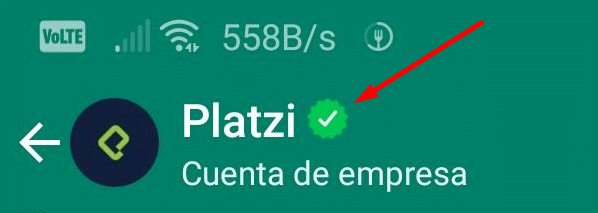WhatsApp Scams are big business these days, and it’s not always easy to know how to stay safe. Due to its immense popularity, scammers are using WhatsApp for identity theft and to steal from millions of poor and unsuspecting victims.
Cybercriminals act like a kind of malicious trend hunters. Wherever they identify something that becomes a trend or a digital custom, they are there to attack it.
Many of the scams related to WhatsApp do not occur in the app. In many cases, they have to do with other apps or tools that are somehow associated with WhatsApp: removing the last connection time, spying on messages from our contacts, or even knowing their location. Promises that end up costing a high price for those who believe them.
I received a WhatsApp message from an unknown number
It is important to understand that many companies use WhatsApp as a marketing tool. In the same way, unscrupulous people do it who may be looking to hack our brain to fall into a scam.
If it is a trustworthy company, the most sensible thing is that in that first message they indicate; What company is contacting us and, How did they get our contact number. Never trust messages that do not clearly indicate who the sender is.
Many of these scams begin with messages from unknown numbers. Who will be that mysterious stranger who writes to us on WhatsApp? What mysterious gift is he sending us? Probably a poisoned one in the form of phishing, trojans, or malware.
If we doubt the identity of the sender and we do not have the number in our contact list, it is better not to open anything they send us. Blocking and reporting the number is the best we can do.
This type of WhatsApp fraud can cause many problems if not handled carefully.
How do WhatsApp scammers find victims??
Advertisements on social networks are one of the most effective ways in which scammers find their victims. Because WhatsApp links to your phone number, these criminals can also get their lists of cell phone numbers and exploit a whole group of recipients at once.
How do I find out if they want to scam me?
It may seem obvious to some people, but not to the gullible users who were fooled. There are some telltale signs to watch out for when determining if it’s a scam or not. These signs are:
- Poor grammar and spelling in messages.
- You receive a message from a total stranger.
- WhatsApp, Facebook, or Instagram sends you messages directly. The company does not do this, never.
- The message threatens you or urges you to click on a link or press a button.
- Someone requests payment information or other personal data.
All these things indicate a possible scam. To stay safe from these types of situations:
- Never interact with links to social networks or messages unless you are sure who sent it and where it is going.
- Never give your personal information or payment information.
- Be careful with things that sound too good to be true, such as prizes won or incredible discounts and offers.
- Always be on the lookout for suspicious offers.
- Keep your device updated with the latest security patches and antivirus software.
Unfortunately, unless you want to completely withdraw from social media and delete WhatsApp, you cannot avoid becoming a target. However, armed with knowledge of these scams, you can avoid getting caught and keep your phone and data safe.
Most Common WhatsApp Scams
There are some different variations of WhatsApp scams, but the end result is the same. Scammers want to get their hands on your bank or credit card details or infect your phone with malware so they can takewhat they want.
The most popular WhatsApp scams to be aware of are:
1) Fake Versions of WhatsApp
This involves receiving an invitation to upgrade to WhatsApp Gold, a special edition of the messaging app with new and exciting features. However, it is a scam. WhatsApp Gold, WhatsApp Spy, and the like are not real applications, and any “alarming warning” about these applications is also a scam.

- WhatsApp Gold: Scammers trick many users into downloading a fake version of WhatsApp called WhatsApp Gold. Victims thought they were getting more fun emoticons and a cool background library, but what they got was a $40 per month fee that had nothing to do with WhatsApp.
- WhatsApp Spy: Other WhatsApp enthusiasts were drawn to the idea of spying on their friends’ conversations and downloaded and installed WhatsApp Spy. Instead of gaining access to private and encrypted conversations, their phones were hijacked by malware.
- Facebook App to use WhatsApp: Although the instant messaging tool can only be used among smartphones with a SIM inside, a web application appeared on Facebook that supposedly allowed connecting WhatsApp with the social network. It was a fake web app that accessed basic user information, sending invitations to all their friends on the platform and redirecting to a URL not related to either of the two companies.
2) Supposedly Contacted by WhatsApp Technical Support
Scammers in this scam pose as members of the WhatsApp technical support team. To make it look legitimate, they add a “verified” symbol to their profile picture. In the most common scam, the impostors ask you to verify your identity. Or they “help” you by requesting credit card numbers, six-digit WhatsApp verification codes, and other confidential information.

3) Links to Offers, Gift Cards, Coupons, Sweepstakes, Fake Surveys, or Job Offers
This is one of the most common scams through WhatsApp today, and one of the most dangerous, because it not only comes from unknown WhatsApp numbers but can also come from one of our contacts, who was convinced to pass the opportunity on to their acquaintances.
4) QR Code Scams
The cybercriminal tells the victims that they won a big prize in a contest. The scammer sends a QR code to scan and transfer money. With the bank account information that the victim inadvertently shares, the scammer proceeds to empty their bank account.
5) Call Forwarding Scams
A WhatsApp scammer can take over a victim’s account and access messages using a call forwarding trick. In this scam, a one-time password verification code is sent via a phone call using a mobile operator’s automated call forwarding service to send calls to another number.
6) Financial Aid Fraud from Friends or Loved Ones in Need
In this scam, scammers pose as friends or loved ones of the victim and claim that they need immediate help. These collaborations can be for different reasons, medical, family, migratory… but in all cases, they let you know that the money is urgently needed.
7) Parent Impersonation Schemes
The mom and dad impersonation scheme is a classic social engineering attack that is extremely easy to orchestrate. It involves scammers posing as the victim’s child and asking for money.
Receiving document files, such as PDF, Word, or Excel, through WhatsApp from strangers represents a significant risk, even through static or animated images (GIF), as they could contain malicious code that, when executed, can be used to obtain passwords and sensitive data.
9) Spread of Fake Messages and Chains
This is not a scam per se but it is a type of criminal action that has serious consequences for societyas a whole. The spread of fake news, hoaxes, and chain messages can cause panic, misinformation, and even harm to people’s health.
✅ How to Protect Yourself from WhatsApp Scams
1) Set up two-factor authentication (2FA)
Two-factor authentication helps to enhance the security of any online account, not just your WhatsApp account. Setting this up ensures an additional layer of protection when you log in to an app. A one-time code is sent to your phone, email, or authentication app before you can log in to WhatsApp.
2) Agree on creating an emergency password with your Family
Consider creating an emergency password with your parents or other loved ones to avoid falling victim to an impersonation scam. You would use this password to confirm if an unknown number is coming from someone you know.
In this way, a parent can respond to a text message that says “Hello dad” using the emergency password or asking a question to get the correct answer.
3) Question ALL urgent money requests
Even if the request comes from a close friend or a family member, you should always question urgent money requests. Scammers use urgency tactics to prevent you from looking into the circumstances of the person supposedly requesting money.
4) Call to confirm
Even if the person texting you says the number has been disconnected or their phone is broken, call the number you have for them. If you can’t reach them by phone, reach out to them directly on social media to confirm before sending any money.
5) Report the contact and Scam to WhatsApp
on’t forget to report any suspicious activity to WhatsApp. They can work to shut down those fraudulent accounts and make sure other users are not affected by similar phishing or smishing scams. To report a number on WhatsApp:
- Open the chat with the user you want to report.
- Tap the contact name.
- Tap on “Report Contact”.
- Finally, tap on “Report and Block”.
Final Recommendations
It is important to be cautious on WhatsApp, as this type of application is a very cost-effective way for scammers to reach billions of people around the world.
Seemingly harmless friend requests can end with the inevitable request for money. 9% of all contact methods in these types of scams occur through WhatsApp. Whether it’s a WhatsApp scammer posing as your child, or a message about a gift card or sweepstakes, you should always approach messages from unknown numbers with caution.
Share this information with friends and family so that everyone can be properly informed and avoid falling victim to these scams.





